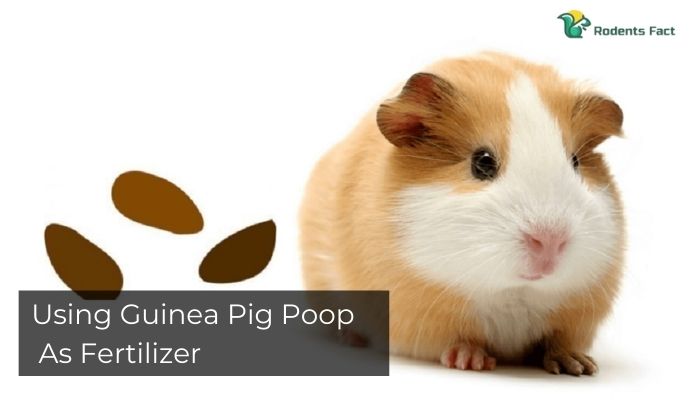As a gardener, you’re always looking for ways to nourish your plants and improve your soil. Have you considered tapping into an unexpected yet plentiful source right under your nose? Believe it or not, guinea pig manure makes an excellent organic fertilizer.
Let’s explore the benefits of using cavy poop in the garden and how to make the most of this potent poop
Why Guinea Pig Waste Works Well as Fertilizer
Guinea pigs, also known as cavies, produce pellet-shaped poop that is packed with nutrients plants crave This manure contains nitrogen, phosphorus, potassium, and other minerals that are released back into the soil as it breaks down.
Here’s why guinea pig poop succeeds as an organic fertilizer:
- Pelleted structure allows quick breakdown compared to other manures
- High nitrogen content fuels leafy growth and green foliage
- Phosphorus promotes flowering, fruiting, and root development
- Potassium supports overall plant health and disease resistance
Plus, guinea pigs eat a diet of hay and vegetables. This plant-based food leads to manure that is gentle on plants, unlike pet waste from carnivorous animals.
And as cavies poop often, a pair of guinea pigs can produce over 100 pellets per day. That adds up to a sustainable source of organic matter for your garden.
Using Fresh vs Composted Guinea Pig Manure
You have two options when using cavy poop as fertilizer:
Applying Fresh
The pelleted structure allows fresh guinea pig manure to be scattered directly onto garden beds without risk of burning plants. It breaks down rapidly, releasing nutrients within days. Spread pellets thinly around plants or till them shallowly into soil.
Watering will help dissolve the manure faster. You can also brew manure “tea” by soaking pellets in water for a nutrient-packed liquid fertilizer.
Composting First
Composting guinea pig manure for 2-6 months before using allows it to fully decompose and mellows the nutrient levels. To compost:
- Mix manure and soiled bedding with carbon-rich “browns” like leaves or straw
- Maintain moisture and airflow
- Turn or stir the pile occasionally
- Apply finished compost around plants
Composting also eliminates any potential parasites or pathogens in the manure. This is recommended for use around edibles.
Ideal Use Cases for Guinea Pig Fertilizer
Here are some prime uses for harnessing cavy poop power
- Top dressing for vegetable gardens – scatter pellets around plants or side dress rows
- Mixing into potting soil for containers and seed starting
- Fertilizing annual and perennial flower beds
- Boosting nutrients for fruit trees and shrubs – compost first for edibles
- Adding organic matter to new garden beds or amending existing soil
Guinea pig manure provides a well-rounded fertilizer for gardens. Adjust application based on specific plant needs and growth stage. Start light and increase over time as the manure impact becomes clear.
Application Rate Guidelines
Follow these tips to apply guinea pig manure appropriately:
- Use sparingly, 1-2 pellets per sq ft, to avoid overfeeding plants
- For potted plants, mix a few pellets into the soil
- Work composted manure into beds at 1-2 inches deep
- Repeat applications every 4-6 weeks through the growing season
- Discontinue use for dormant plants or in winter
Monitor your plants and soil and adjust as needed. Signs of overfertilization include floppy growth, excessive foliage, or buildup of unused nutrients.
Additional Tips for Using Cavy Fertilizer
Here are a few more pointers for harnessing guinea pig poop power:
- Store fresh manure in a sealed bin until use to contain odors
- Use within 6 months for optimal nutrient levels
- Combine with high-carbon bedding if applying manure straight
- Avoid using around human edibles if guinea pig has parasites
Like any fertilizer, caution is needed. But with smart practices, you can safely unlock the potential of this free, organic booster for your garden.
Let Your Guinea Pigs Poop for Plant Health
Your furry guinea pig companions can become fertilizer factories, naturally producing plant food around the clock.
Tap into this free, organic resource instead of buying chemical-laden fertilizers. Simply collect and distribute those nutrient-packed pellets to nourish your garden with a little help from your cavy.
Both you and your plants will benefit from this mutually beneficial arrangement. Just be sure to follow smart guidelines and application rates to avoid overdoing it. Soon your garden will be thriving thanks to the power of guinea pig poop!
Guinea Pig Poop for Compost? | Making Your Every Own Compost for Your Garden
FAQ
Can pig poop be used as fertilizer?
Is animal poop good fertilizer?
How to dispose of guinea pig waste?
Does guinea pig poop have bacteria?

